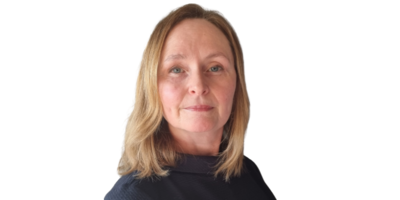International collaboration project on long term conditions
Leaders in family healthcare from USA, Australia, Denmark and UK, met at the university to discuss the challenges of promoting family-focussed care in the NHS

Family-focussed health-care in the NHS: A White-Rose collaboration project in long-term condition management across the life-course
On the 7th and 8th November 2016, a group of international leaders, health/social care researchers, people living with long-term conditions, carers from around the UK met at the University of Leeds to discuss the challenges of promoting family-focussed care in the NHS.
International, multi-institutional approach
The event was part of a wider White Rose Collaboration project involving: Professor Veronica Swallow, Dr Joanna Smith, Dr Linda Milnes, Dr Alison Rodriguez and Dr David Saltiel (University of Leeds); Professor Angela Tod,Professor Penny Curtis, Dr Parveen Ali & Dr Jill Thompson (University of Sheffield); Professor Yvonne Birks,Professor & Bryony Beresford (University of York); & Professor Sue Kirk (University of Manchester).
Following a Welcome address from Professor Andrea Nelson, the workshop included presentations from and debate with international leaders in family healthcare: Professors Kathleen Knafl and Marcia van Riper, University of North Carolina at Chapel Hill, USA. Professor Linda Shields, Charles Sturt University, Australia, Dr Birte Ostergaard, University of Southern Denmark
Aims defined
The workshop has paved the way for the project team to begin defining aims, objectives and research design for a future grant application to begin developing/evaluating innovative tool/intervention/s to foster and sustain family-focussed LTC care across the life-course.
Feedback from the workshop highlights the value of such a collaborative venture with participants commenting: 'It was excellent and very inspiring to be part of the discussions. Very keen to be involved in any way that is appropriate – lots of food for thought. So good to see everyone and make those connections too. '
Next steps
Building on the workshop event and the discussions and partnerships formed, the project has created:
· A ‘virtual’ international group of family-focussed researchers and educators to begin addressing key research questions that we identified during the workshop
· A group of interested and experienced service users and carers who will guide, advise and collaborate on future projects
Pictured above at Devonshire Hall, University of Leeds, front row l-r : Dr Jo Smith (UoL), Professor Linda Shields, Charles Sturt University, Australia, Professor Sue Kirk, University of Manchester, and Professor Veronica Swallow, UoL. 2nd Row: Dr Alison Rodriguez, Dr David Saltiel, and Dr Linda Milnes UoL. 3rd Row: Professor Alison Tod, University of Sheffield, Dr Birte Ostergaard, University of Southern Denmark, Dr Parveen Ali, University of Sheffield, and Professor Andrea Nelson. 4th row: Professor Kathleen Knafl, University of North Carolina at Chapel, USA, Professor Penny Curtis, University of Sheffield. Top: Professor Marcia van Riper, University of North Carolina at Chapel, USA.
Background to the collaboration project
Around 15 million people in England live with long-term health conditions and family members often contribute to their clinical care at home. One person’s condition can, therefore, impact on the whole family’s health and well-being. Care of persons with long-term conditions is a key health-policy priority because these conditions account for 70% of health/social-care spending. The Kings Fund predicts that improving service quality and cost-effectiveness for people with such conditions will remain critical for the foreseeable future.
Research indicates that family relationships have the potential for health-promoting effects, yet family-focussed care across the life-course is not central to the NHS. Little is known about how UK health/social-care professionals understand family-support; how family-life, family-health and social-care intersect; or what tools/interventions exist to support and promote family-focussed care for those living with long-term conditions across the life-course.



